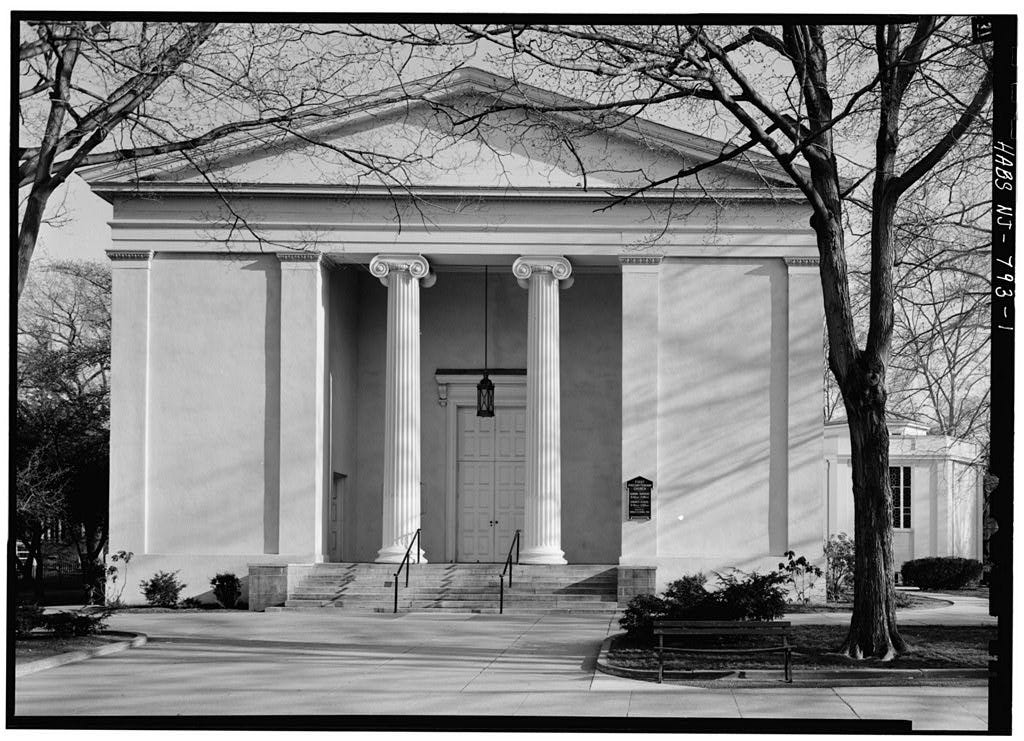
Today we’ll quote more liberally (no pun intended) from a previously-mentioned book chapter1 written by Machen (about four years before his death) which contains a good deal of autobiography but also contains much about Machen’s convictions concerning liberty. It also defends the role of the ecclesial controversialist. (Bolding is ours)
In all controversy, however, the great principle of liberty should be preserved. I am old-fashioned in my belief that the Bible is true, but I am equally old-fashioned in my love of freedom. I am opposed to the attack on freedom in whatever form it may come. I am opposed to the Soviets, and I am opposed to Mussolini.
For the same reason also, I am opposed to the rapidly growing bureaucracy in this country. I am opposed to a Federal department of education; I am opposed to monopolistic public schools; I am opposed to a standardization that treats human beings as though they were Ford2 cars. For the same reason, to say nothing of far deeper reasons, I am opposed to a church union which is the deadliest enemy of Christian unity. I am opposed with all my mind and heart to the depressing dream of a monopolistic Protestant church organization placing the whole Protestant world under one set of tyrannical committees and boards. I am opposed to the growing discouragement of free discussion in my own church and other churches. I am opposed to secret church courts or judicial commissions. In all ecclesiastical affairs I believe in open covenants openly arrived at. I am opposed with all my might to actions like the action of the last Presbyterian General Assembly tending to discourage publicity regarding measures proposed for adoption by the church.3
Just because I believe in liberty, I believe in the right of purely voluntary association. I believe in the right of a voluntary association4 like the Presbyterian Church. If a man does not believe that the Bible is true, and in his interpretation of the Bible is not an adherent of the Reformed Faith, I am opposed to exerting any compulsion on him to become a Presbyterian minister. If he adopts some other position other than that of the Presbyterian Church, let him have full liberty to become a minister in some other body. But if he does choose to become a Presbyterian minister, I hold that he should be able honestly, and without mental reservation, to subscribe to the ordination pledge setting forth that for which the Presbyterian Church exists. Without such honesty5 there can be no possibility of Christian fellowship anywhere for those who do with their whole heart hold to what that pledge sets forth. And true Christian fellowship, not forced organizational union of those who disagree in the whole direction of their thought and life, is the real need of the hour.
I take a grave view of the present state of the Church; I think that those who cry, " ‘Peace, peace,’ when there is not peace,” constitute the greatest menace to the people of God. I am in little agreement with those who say, for “example, that the Presbyterian Church, to which I belong, is “fundamentally sound.” For my part, I have two convictions regarding the Presbyterian Church. I hold (1) that it is not fundamentally sound but fundamentally unsound; and I hold (2) that the Holy Spirit is able to make it sound. And I think we ought, very humbly, to ask Him to do that. Nothing kills true prayer like a shallow optimism. Those who form the consistently Christian remnant in the Presbyterian Church and in other churches, instead of taking refuge in a cowardly anti-intellectualism, instead of decrying controversy, ought to be on their knees asking God to bring the visible Church back from her wanderings to her true Lord.
A downloadable PDF of the chapter: https://www.pcahistory.org/documents/machen-conflict.pdf
Meaning standardized, the product of an assembly line, as it were.
Remarkably consistent with what Machen wrote 10 years before: “Involuntary organizations ought to be tolerant, but voluntary organizations, so far as the fundamental purpose of their existence is concerned, must be intolerant or else cease to exist. The state is an involuntary organization; a man is forced to be a member of it whether he will or no. It is therefore an interference with liberty for the state to prescribe any one type of opinion or any one type of education for its citizens. But within the state, individual citizens who desire to unite for some special purpose should be permitted to do so. Especially in the sphere of religion, such permission of individuals to unite is one of the rights which lie at the very foundation of our civil and religious liberty. The state does not scrutinize the rightness or wrongness of the religious purpose for which such voluntary religious associations are formed--if it did undertake such scrutiny all religious liberty would be gone--but it merely protects the right of individuals to unite for any religious purpose which they may choose.” - Christianity and Liberalism, ch. 7 - “The Church,” p. 167, 168
As we have quipped, “Honesty is the best polity.”



As a life-long Presbyterian, and in the PCA since it was founded, I believe that the minutes of session meetings should be available to members, excluding those pertaining to personnel matters. Maybe they are at some churches, but not mine. I also believe that a candidate for ministry in the PCA, or any other Presbyterian branch, shouldn’t be allowed to have any exceptions in their beliefs that pertain to the WCF or BCO, period. If they do, then they shouldn’t be ordained, or if already ordained, then shouldn’t be accepted into the presbytery.